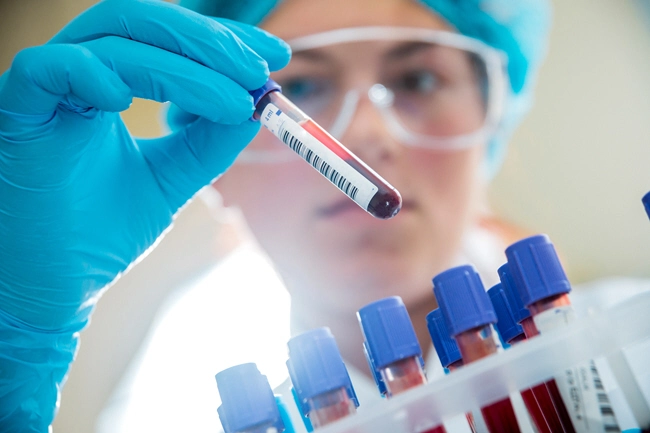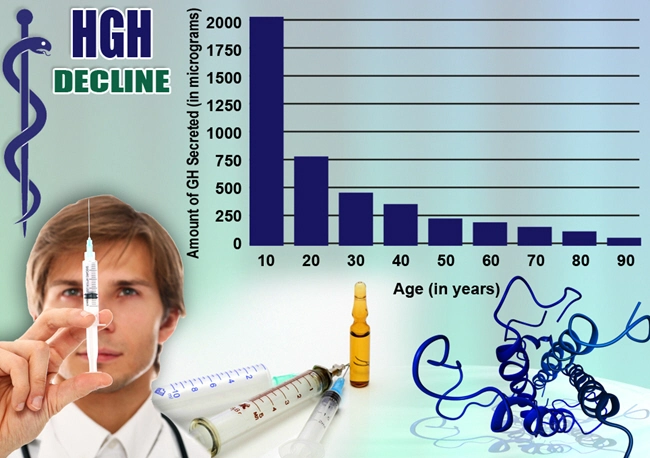
Minoxidil: A potential cure for baldness?
You’ve seen the late-night infomercials. A “before-and-after” picture appears of a sad, unhappy, balding man (before) and the same man smiling with a healthy head of hair (Later). The “magic cure” is usually a shampoo, gel, pill, or red light cap.
Most of these “cures” are expensive, sometimes thousands of dollars.
If you pay attention to the many disclaimers at the bottom of the screen, you will see things like “Results not guaranteed,” “Results may vary,” or “The best results are when the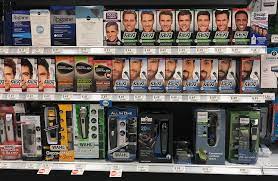 use of this product is combined with following an exercise and diet program.”
use of this product is combined with following an exercise and diet program.”
These disclaimers are there for good reason. According to dermatologists specializing in hair loss, most of these products fail to deliver on the hype.
“There is an endless array of useless hair growth remedies,” often at “significant cost,” said Dr. Brett King, a dermatologist at Yale School of Medicine. Yet, he added, “because people are desperate, such hair growth remedies continue to abound.”
However, all is not lost. Help may be on the way in the form of minoxidil, an old and well-known hair-loss treatment drug used very differently. Rather than being applied directly to the scalp, it is being prescribed in very low-dose pills.
The good news is the cost of the drug: pennies a day!
What is Minoxidil?
Minoxidil was initially prescribed for treating high blood pressure. But a strange side effect occurred: hair began to sprout all over the user’s body, including the face. This, along with new breakthroughs in blood pressure medicines, led to minoxidil being phased out as a blood pressure prescription.
But since the hair-growing side effects were noted, the manufacturer created a minoxidil lotion for treating baldness. The drug was approved for men in 1988 and women in 1992. Today it is called Rogaine.
However, there are issues with Rogaine. The foam does not work for everyone. This might be due to many folks not continuing to use it since it needs to be directly on the scalp – and the patient’s hair gets in the way, which negates the drug’s effectiveness.
Also, Rogaine is sticky, and many people, particularly women, do not like the feeling in their hair when the foam is left on, which results in less hair regrowth if any.
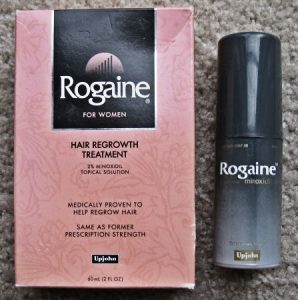 But when taken orally at a lower dose, the results were much better. Minoxidil must be converted to an active form by sulfotransferase enzymes that might not be present in sufficient quantities in hair roots. When the drug is taken orally, it is automatically converted to an active form.
But when taken orally at a lower dose, the results were much better. Minoxidil must be converted to an active form by sulfotransferase enzymes that might not be present in sufficient quantities in hair roots. When the drug is taken orally, it is automatically converted to an active form.
Incredibly, this lower dose application of minoxidil for hair loss was discovered accidentally. Dr. Rodney Sinclair, a professor of dermatology at the University of Melbourne in Australia, had a patient with female pattern baldness.
The hair on the crown of her head had thinned, and she was unhappy with how it looked. Unlike most of his patients, Rogaine was adequate for her, but she developed an allergic rash on her scalp from the drug. So this became a dilemma; if she quit taking it, her hair would thin again.
“So I was stuck,” Dr. Sinclair said. “The patient was very motivated, and the one thing we knew was that if a patient has an allergy to a topically applied medicine, one way to desensitize is to give very low doses orally.”
To achieve that, Dr. Sinclair cut the minoxidil pills into quarters. Unexpectedly, the low dose made her hair grow but did not affect her blood pressure, the original purpose of the higher-dose drug.
He then lowered the dose gradually until he got down to adequate doses of one-fortieth of a pill and began routinely prescribing the drug. That first patient still takes it.
At a Miami meeting in 2015, Dr. Sinclair reported that low doses of minoxidil prompted hair growth in 100 successive women. He published the results in 2017, cautioning that diligent research was needed, in which some patients would participate in a double-blind study where neither the participants nor experimenters knew who was taking minoxidil or a sugar pill. So far, nothing has happened. He says he has now treated more than 10,000 patients.
Although more dermatologists are offering low-dose minoxidil pills, the treatment remains unknown to most patients and many doctors. It is not approved by the Food and Drug Administration for this purpose and so is prescribed off-label — a common practice in dermatology.
“I call us the off-label bandits — a title I am proud to bear,” said Dr. Adam Friedman, professor and chair of dermatology at George Washington University. He stated that dermatologists are trained to know how medicines work, allowing them to try off-label drugs. In dermatology, it is often clear if treatment is helping. Does a growth fade or not?
Dr. Robert Swerlick, professor and chair of the dermatology department at Emory University School of Medicine, agreed. “I tell people most things we do are off-label because there is nothing on-label,” he said. He provided a long list of conditions, including skin pigment disorders, skin inflammatory disorders and relentless itching, for which the standard treatments are off-label.
Without a rigorous trial leading to F.D.A. approval, prescribing minoxidil pills for hair loss remains off-label. And, dermatologists say, it will probably remain so.
“Oral minoxidil costs pennies a day,” Dr. King said. “There is no incentive to spend tens of millions of dollars to test it in a clinical trial. That study truly is never, ever going to be done.”
Some patients taking low-dose minoxidil notice rogue hairs growing on their faces and chins. As a result, some dermatologists, including Dr. Sinclair, have prescribed another drug — very low doses of spironolactone, a blood pressure drug that also blocks certain sex hormones called androgens — to try to prevent unwanted hair growth.
Recently, many hair-loss dermatologists have been prescribing low-dose pills to patients with male and female pattern hair loss, a regular, unwanted development of aging.
“It is just starting to see a surge in popularity,” said Dr. Crystal Aguh, a dermatologist at Johns Hopkins School of Medicine. “More and more at conferences, we are sharing our success stories.”
She added that doctors unfamiliar with hair loss treatments “would not be familiar with oral minoxidil,” except as a rarely used treatment for high blood pressure that comes with a black box warning that it can cause heart problems. But, she and others say, the warning is for much higher doses.
If hair loss is too severe, minoxidil will not help, Dr. Aguh warned. “It will not work, for example, if a man is mostly bald, with a shiny scalp. There is nothing to restore.” She added that the ideal patient is not entirely bald but has lost enough hair that even a casual observer would notice.
Patients who do not want to go the off-label route are left with what some dermatologists say are ineffective over-the-counter remedies or one of two F.D.A.-approved products for hair growth.
They include Rogaine and finasteride, a generic medicine used at higher doses in men to treat a benign enlarged prostate. As a hair-loss drug, it is approved for men only. It has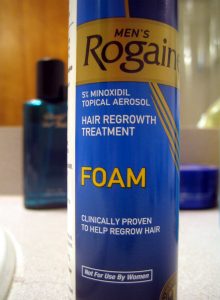 also been linked to erectile dysfunction.
also been linked to erectile dysfunction.
Then, there is the word of mouth about minoxidil in pill form. “I’ve seen miracles happen,” Dr. Aguh said. One involved Brandy Gray, 44, from Monkton, Md. “I had been losing my hair over time,” she said. “Then I started having circular patches” with no hair. “They got worse and worse.”
She had seen another dermatologist who gave her shampoos and supplements, which proved useless. Eventually, she said her dermatologist told her, “There is nothing left I can try for you, nothing more I can do.”
She went to Dr. Aguh, who gave her low-dose minoxidil. Ten months later, her hair was thick and abundant. “I can part my hair in different ways,” she said. “I don’t wear wigs anymore.”
It is as though that hair loss never happened.
Reference
https://www.nytimes.com/2022/08/18/health/minoxidil-hair-loss-pills.html
Contact Us Today For A Free Consultation
Dear Patient,
Once you have completing the above contact form, for security purposes and confirmation, please confirm your information by calling us.
Please call now: 1-800-380-5339.
Welcoming You To Our Clinic, Professor Tom Henderson.

- Finally! A Safe, Effective and Easy Way to Slow Aging: Genotropin HGH Product [Last Updated On: February 17th, 2025] [Originally Added On: June 24th, 2020]
- Metformin: The First Effective Anti-Aging Drug? [Last Updated On: February 16th, 2025] [Originally Added On: June 29th, 2020]
- A new study says Human Growth Hormone (HGH) can reverse aging! [Last Updated On: October 13th, 2024] [Originally Added On: June 30th, 2020]
- What Metabolism Reveals About Aging and Mortality [Last Updated On: February 17th, 2025] [Originally Added On: December 1st, 2020]
- Stanford University: A Way to Reverse Age-Related Health Issues is a Real Possibility [Last Updated On: August 15th, 2025] [Originally Added On: February 4th, 2021]
- The Six Biggest Hormone Disruptors to Avoid [Last Updated On: October 8th, 2025] [Originally Added On: May 16th, 2021]
- Laugh It Up! Boost Your HGH FAST [Last Updated On: August 14th, 2025] [Originally Added On: June 7th, 2021]
- Why Poor Sleep Quality is a Serious Detriment to Your Health [Last Updated On: October 6th, 2025] [Originally Added On: June 12th, 2021]
- Scientists Bold Prediction: We'll Soon Extend Life Well Beyond 120” [Last Updated On: June 1st, 2025] [Originally Added On: August 24th, 2021]
- Can My Hormones Make Me Fat? [Last Updated On: August 13th, 2025] [Originally Added On: September 1st, 2021]
- Testosterone Therapy may protect Telomeres and slow aging [Last Updated On: February 16th, 2025] [Originally Added On: September 14th, 2021]
- The Quest for the Secret of Longevity [Last Updated On: September 30th, 2025] [Originally Added On: November 24th, 2022]
- Jeff Bezos Wants to Stop Aging! [Last Updated On: October 3rd, 2025] [Originally Added On: November 24th, 2022]
- Is it possible to live to 180? Perhaps! [Last Updated On: October 19th, 2024] [Originally Added On: November 29th, 2022]
